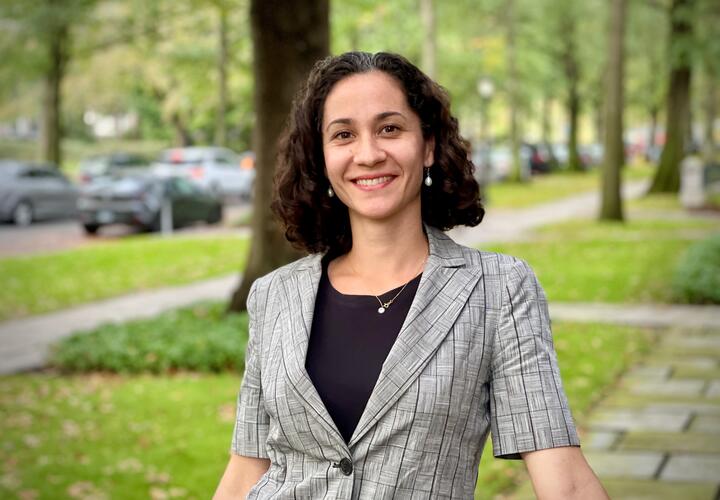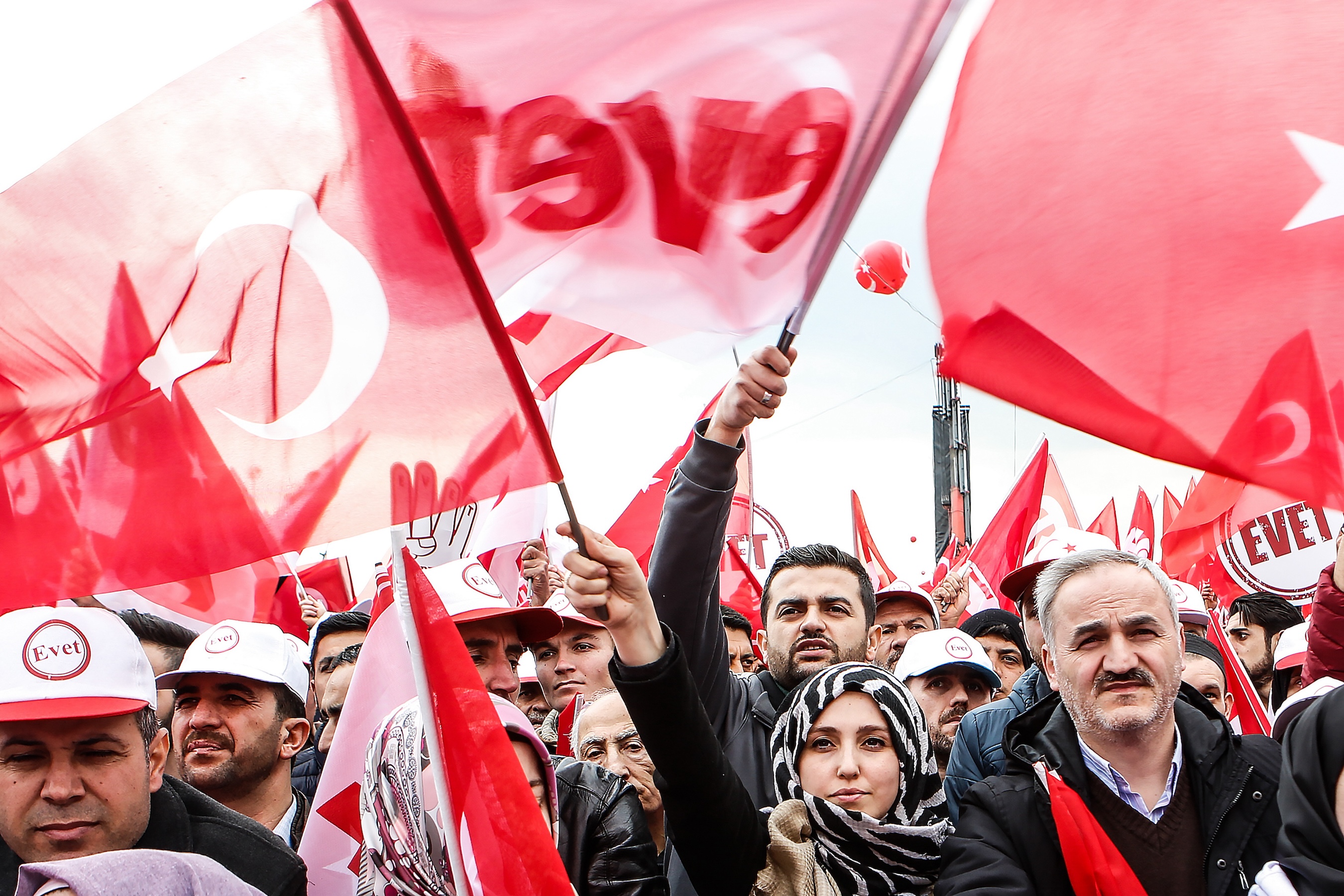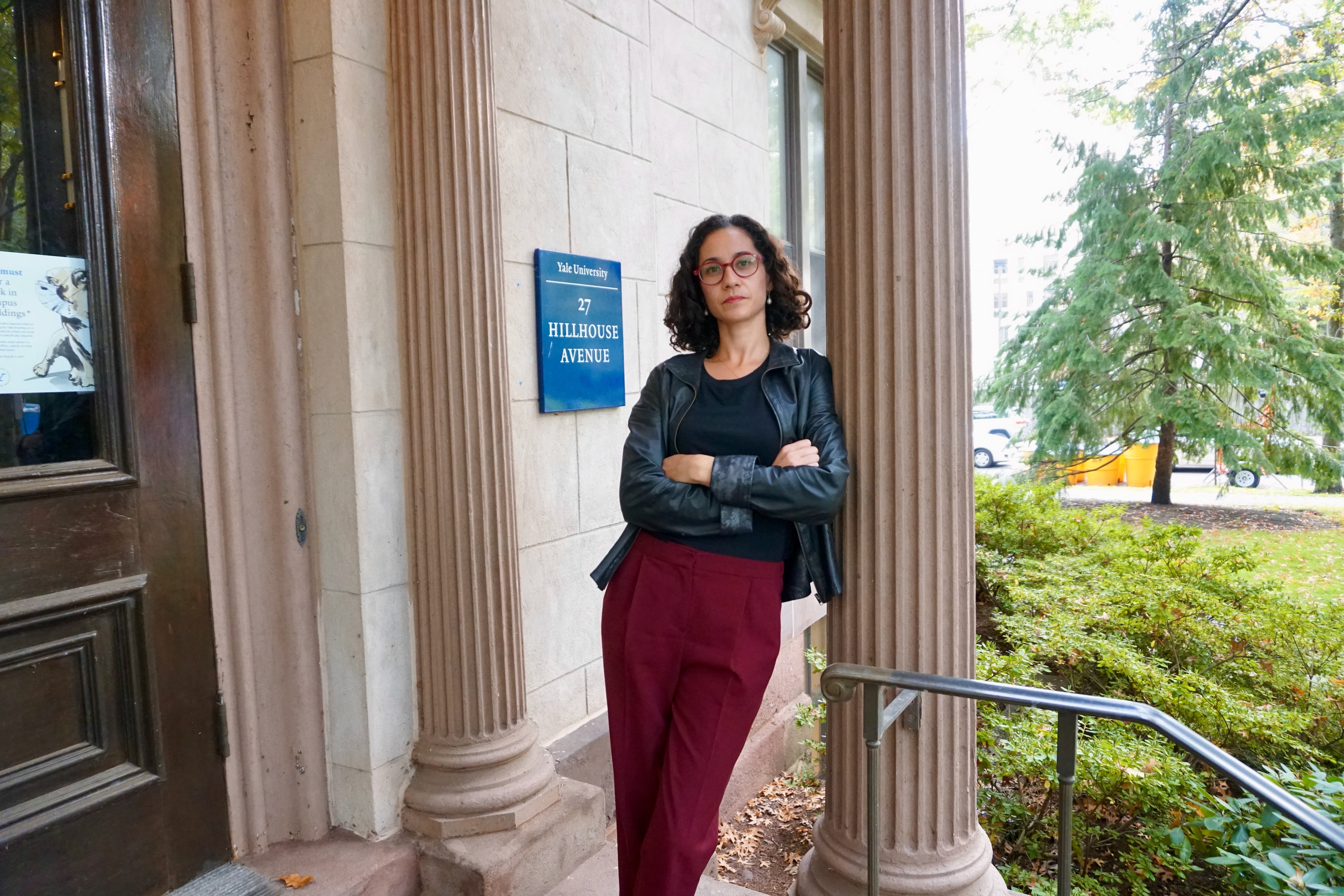A lesson in perspective: EGC Visiting Professor Ceren Baysan on Political Economy

When asked to define political economy, visiting Assistant Professor of Economics Ceren Baysan posed her own question in response: “Does politics affect economics or does economics affect politics? They are inseparable.”
The question of the interactions between politics and economics, Baysan said, leads people to reflect on the core issue of the distribution of resources between groups at different levels of power. The government, political institutions, and voter engagement play a key role in this process; therefore, the type of governance has significant implications for economic development. Her recent work on political economy and development economics includes studies that employ field experiments on reducing censorship in Turkey to explore ideological polarization and the persistence of poor governance.
Baysan is currently an Assistant Professor of Economics at the University of Essex and an affiliate of the Abdul Latif Jameel Poverty Action Lab (J-PAL). As a Visiting Scholar at EGC and the Jackson Institute for International Affairs this year, she has worked with Professors Gerald Jaynes and Rohini Pande – and Yusuf Neggers, another visiting researcher – on the Race, Ethnicity, Gender, and Economic Justice Virtual Symposium, October 28 to November 5. In the spring she will teach the course “Approaches to International Development”, as well as continuing her research. In the long run, she plans to “continue research and conduct fieldwork to understand the interaction between institutions and individual beliefs and perceptions in explaining outcomes ranging from conflict to polarization, social integration, and economic behavior.
Developing a passion for field research
Baysan was born in Virginia, a year after her parents migrated from Turkey to the US. Her family also lived for a time in Bangladesh, where she learned about the Grameen Bank and microcredit – the system of giving poor people small loans to start and build businesses with the aim of helping them escape poverty. After finishing her undergraduate studies at McGill University in Montreal, Baysan worked for the Centre for Microfinance in India (CMF), a formative place to start her career. She developed a passion for field work through researching access to finance among low-income farmers.
During this period, she also got to learn first-hand the importance of political economy issues raised by Indian scholars like Pande, Jean Drèze, and Amartya Sen. When CMF placed her on a project in Thanjavur, she also got the opportunity to directly connect with Pande, who became a longtime mentor and currently serves as EGC director.
When people already live in a society divided by high levels of censorship, reducing censorship can backfire and increase divisions along ideological lines. – Ceren Baysan
During the second year of Baysan’s PhD, there were large protests in Turkey which further sparked thoughts about political economy topics that she wanted to explore both academically at Berkeley and in the field. This interest combined with her passion for field work, and the impact of previous political upheaval on her parents, led her to spending two years in Turkey, allowing her to gain a range of valuable perspectives. “A lot of my time was spent learning from journalists, activists, voters, and politicians across the ideological spectrum,” she described.
A focus on censorship and attribution
Today, Baysan’s interest in political economy is central to her work. She said that voters’ ability to hold politicians and the state accountable is crucial, given the level of inequality in society and the significance of the state in determining resource allocation. Voter perceptions and beliefs about state performance and the country’s problems can be negatively affected by state censorship or false narratives that put blame on “out-groups,” like foreign powers or immigrants.
According to Freedom House, more than 80% of the world’s population cannot readily consume uncensored media. “As you can imagine,” Baysan said, “this becomes a real dilemma in the context of urgent issues like climate change, recessions, and epidemics, regardless of the technology and knowledge that humanity has developed.” This dilemma is reflected in increasing political polarization around the world, where ideologically divided voters disagree about high-stakes policies.
 4.murat, Shutterstock
4.murat, Shutterstock
Demonstrators at rally for a referendum in Istanbul, April 08, 2017.
Baysan explored the impact of reducing censorship on voter behavior in the paper, “Persistent Polarizing Effects of Persuasive Communication: Experimental Evidence from Turkey”. She analyzed the impact of a randomized door-to-door information campaign in the context of a referendum proposing policy changes to lift limits to presidential powers in the wake of the 2016 coup. In one group of randomly selected neighborhoods, volunteers from the main opposition party gave voters of different ideological orientations information on poor economic performance and increased terrorist activity under the administration. In another group of randomly selected neighborhoods, voters received information on the proposed policy changes to weaken constraints on the executive. Far from drawing some voters only into the opposition, the campaign led to increased policy polarization in both directions, and this persisted for at least two years.
In describing the paper, Baysan said, “Access to diverse information is considered pivotal for political accountability and a well-functioning democracy. However, this paper shows that when people already live in a society divided by high levels of censorship, reducing censorship can backfire and increase divisions along ideological lines.”
She said that in Turkey, threats from foreign powers have long been part of the public discourse. As a result, voters disagree about whether strengthening the state is a good policy, depending on whether they believe the country’s issues can be attributed to the state or external threats. In future work, Baysan seeks to understand the implications of voter heterogeneity and targeted persuasion for competition between political parties.
"Ceren's work is very original for a few reasons," said Edward Miguel, Professor of Economics at UC Berkeley and Director of the Center for Effective Global Action (CEGA). "For one thing, it was courageous to conduct that kind of research in an increasingly authoritarian state. Also, it combined elements you don't often see in a single body of work: qualitative research conducted with senior politicians, a theory-grounded randomized controlled trial among citizens, along with her own deep knowledge of the political context of the country."
Examining forced migration
In a new body of work, Baysan is exploring social and economic integration in the context of mass forced migration. In a paper recently published in the Quarterly Journal of Economics, Baysan and coauthors conducted a study in Turkish elementary schools where a high number of Syrian refugee children were enrolled in recent years. They evaluated an educational program designed to build social cohesion in these schools by teaching the children perspective-taking, and found the program successful in reducing peer violence and social exclusion.
“Cultivating socio-emotional skills in public schools is an institutional policy to build social cohesion,” Baysan explained, “we find that the program also increased trust, reciprocity, and altruism. These skills together form social capital, which is vital for long-term economic development through its impact on effective communication and efficient economic interactions, among other channels.”
 Vestal McIntyre
Vestal McIntyre
Currently, Baysan is working on a project that explores the integration of businesses owned by Syrian refugees in Turkey. She explained that, since these immigrants face obstacles to legally work in Turkey, owning businesses is a sustainable and empowering way to earn their livelihood. Rigorously analyzing refugee-owned and Turkish businesses may also identify potential policies that alter between-group perceptions and improve intergroup relations, highlight complementarities between the refugee and host population, and enhance social cohesion. That social cohesion, in turn, has the potential to actively counteract fear-based identity politics, Baysan said.
Baysan said that she has enjoyed and benefitted from working on these topics while at Yale where there is a lot of overlapping work. In addition, working on the Symposium exposed her to the work of Professor Gerald Jaynes and expanded her understanding of the foundation of development economics. “Yale is an incredibly stimulating environment for this kind of work, my hope is to generate new ideas and learn from faculty and students in EGC on issues I am interested in,” she said.
Written by Anusha Sarathy
